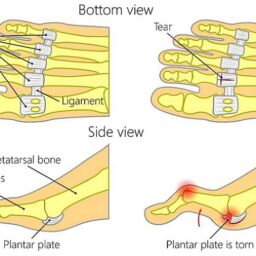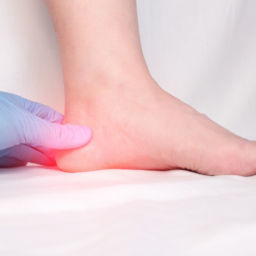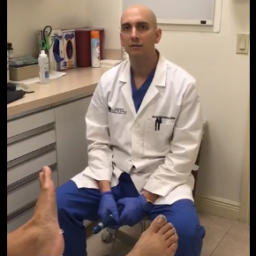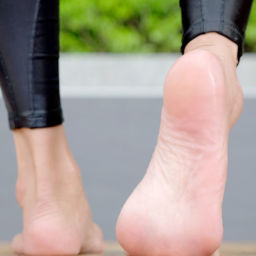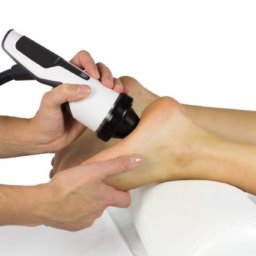
Are you waking up with sharp heel pain or struggling with discomfort after a long day on your feet? You might be dealing with plantar fasciitis, a common but often misunderstood condition. The plantar fascia is a ligament that connects the front of your foot to your heel. Its main role is to support your foot arch and assist with walking, which subjects the ligament to a lot of wear and tear over the years. Plantar fasciitis occurs when this ligament becomes painful and inflamed. The pain is often described as a piercing sensation at the bottom of your heel, typically noticed when you first wake up in the morning, after spending significant time on your feet or following physical exertion.
At Certified Foot and Ankle Specialists, we frequently see patients complaining of heel pain; and if you’re experiencing painful burning or aching on the bottom of your foot, don’t delay making an appointment with the best podiatrist near you. Early diagnosis and treatment of plantar fasciitis are crucial to prevent further damage to the ligament and help you get back on your feet!
Now, let’s explore the treatment options in greater detail.
When is Plantar Fasciitis Treatment Necessary?
If you’re shifting your weight when you walk to avoid plantar fasciitis pain, it’s time to see a doctor. Favoring one foot over the other may ameliorate the pain, but putting an unnecessary amount of strain on other parts of your body can also lead to several other complications.
There are a few different plantar fasciitis treatment methods available to provide you with relief. Depending on your situation, a doctor may at first recommend rest and some pain medication to reduce inflammation. You may also want to consider physical therapy, icing the area, and installing arch supports in your shoes to help reduce the pressure on the ligament.
Foot Injections for Treatment of Plantar Fasciitis Pain
If your condition is not responding to conservative options, your podiatrist may recommend foot injections to reduce your plantar fasciitis pain. These injections can drastically decrease inflammation while reducing the formation of scar tissue and accelerating the healing process. There are different types of foot injections available to treat your plantar fasciitis. Your podiatrist can help determine which is best for your case.
A steroid injection can help patients suffering from plantar fasciitis when prescribed medications aren’t working. This method involves injecting the steroid into the part of your foot responsible for the most pain. Steroid injections not only relieve pain, but they also can help reduce inflammation.
PRP and stem cell therapy involve injecting your own platelet-rich plasma or stem cells into the damaged part of your foot to encourage your body’s natural healing process.
Plantar Fasciitis Pain Treatment with Surgery
If the above methods are not suitable, you may be recommended for surgery as a last resort. This surgery is generally less invasive than many other kinds, rarely requiring you to maintain medical supervision overnight. However, it would require you to avoid putting stress on your foot during recovery.
Though foot injections can help your plantar fasciitis improve or ease your pain, you need to consult a doctor to properly diagnose your condition and recommend the right plan of action. A board-certified specialist can help you determine whether an injection is a good fit for your condition.
If your plantar fasciitis is not improving there may be a cyst in the calcaneus. New minimally invasive treatment techniques are available to fill the cyst, which results in relief of pain right away.
If you’re experiencing pain in the arch of your foot and want plantar fasciitis treatment, you should schedule an appointment with the board-certified podiatrists at Certified Foot & Ankle Specialists today. Additionally, another cause of heel pain that can mimic plantar fasciitis is tarsal tunnel syndrome. It is important to see a physician such as Dr. Kinmon or Dr. Bowles who specializes in peripheral nerve surgery to properly diagnose and treat this condition.
Give us a call at 1-855-550-FEET.
